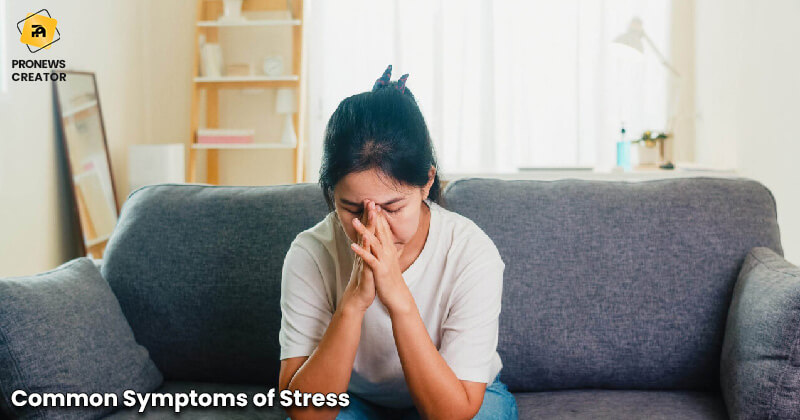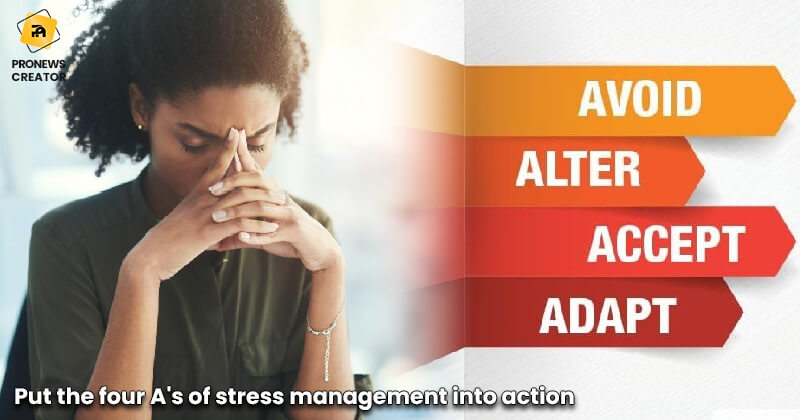Stress is not a component of your life. Stress is mainly your failure to control your system. Stress does not occur as a result of the essence of your job.
Many of us encounter difficulties that can be stressful and elicit powerful emotions in both adults and children.
During traumatic occurrences such as mass shootings, natural catastrophes, or pandemics, it is natural to experience stress, anxiety, sadness, and worry.
Learning healthy stress management tips and receiving appropriate care and support can help lessen stressful feelings and symptoms.
Common Symptoms of Stress
Physical or emotional symptoms may occur. Common reactions to a traumatic incident include:
| Mistrust | Fear, shock, wrath, sadness, concern, numbness, or annoyance |
| Shifts in hunger, energy, desires, and interests | Difficulties sleeping, concentrating, and making decisions |
| Physical symptoms such as headaches, body aches, stomach upset, and skin rashes | Exacerbation of chronic health conditions |
| deterioration of mental health conditions | Increased consumption of tobacco, alcohol, and other drugs |

Summary of the 18 common tips for stress management
Here are some ways you may assist yourself, others, and your community to cope with stress.
1. Take a Short Break from life
You should schedule some genuine downtime to give your mind a break from stressful tasks. If you like to make objectives, this may be hard at first. But if you stay with it, you’ll start looking forward to these moments.

2. Interact with others
Discuss your thoughts and feelings with individuals you trust. Tell a parent, friend, counsellor, doctor, or pastor about your troubles and how you feel and cope.

3. Be Patient
Modern life is so hectic that sometimes we need to sit down and relax. Look around your life for simple ways to do this. Set your watch, for example, 5 to 10 minutes ahead. You’ll arrive a little earlier and escape the worry of being late.

4. Remove Your Triggers
Determine the sources of stress in your life. Is it your job, your commute, or your studies? If you can identify what they are, see if you can eradicate them.

5. Learn to deal with stress at the moment
You can follow a technique to regulate stress levels when stuck in a stressful circumstance. It is when rapid stress alleviation comes in handy.
Taking a deep breath and employing your senses—what you see, hear, taste, and touch—or engaging in a relaxing action is the quickest approach to alleviate stress.

6. Eat Healthily
Eating a well-balanced meal will help you feel better in general. It may also aid with mood regulation. Your meals should have vegetables, fruit, whole grains, and lean protein.

7. Make time for fun and leisure
Making “me” time can help you minimize stress in your life. Don’t get wrapped up in life’s hustle and bustle that you neglect your needs.
You’ll cope with life’s stresses if you make time for pleasure and relaxation.

8. Exercise
Working out is one of the most effective ways to calm your body and mind. Exercise will also boost your mood. However, you do it frequently for it to be effective.
Set exercise objectives that you can achieve so you don’t give up.

9. Locate the source of the problem
When there is difficulty in one area of a relationship, it might expand to others and cause tension.
It is critical to communicate with one another to get to the bottom of the problem and work together to solve it.

10. Take social media breaks
You can have information about everything, but hearing about the traumatic event might be distressing. Consider restricting your news consumption to many times each day and withdrawing from your phone, television, and computer screens for a bit.

11. Do not multitask
Multitasking reduces your productivity at work. Not only that, but it makes us feel more pressured and more prone to make a mistake.
Doing one activity at a time reduces stress and allows you to accomplish sound results.

12. Find balance in life
All work and no play leads to burnout. Strive for a healthy mix of job and family life, social events and solitary pursuits, daily duties, and downtime.

13. Reduce conflict
Conflict in the workplace can be a source of stress. Avoid controversial issues such as politics, religion, or gossip to avoid potential disputes.

14. Practise saying “no.”
Know your boundaries and stick to them. Whether in your personal or professional life, taking on more than you can handle is a sure prescription for stress.

15. Put the four A’s of stress management into action
While stress is an inherent nervous system response, some stressors occur at predictable times, such as your commute to work, a meeting with your employer, or family gatherings.
When determining which option to choose in any situation, remember the four A’s: avoid, alter, adjust, or accept.

16. Do Muscle Relaxation
Your muscles tense up when you’re stressed. You may help loosen them up and rejuvenate your body on your own by:
| Stretching | getting a massage |
| Taking a hot bath or shower | Getting a good night’s sleep |

17. Try to compromise
When you ask someone to modify their behaviour, be prepared to change your own. You’ll have a good time if you’re willing to bend at least a bit.
You’ll have a better chance of finding a happy middle ground if you’re both prepared to bend at least a bit.

18. Avoid persons that cause you tension
Limit your time with that individual or quit the connection if they routinely generate stress in your life.

15. What are the benefits of rapid stress relief?
These methods will assist you:
| Overcome tension fast | Reduce stress over time |
| Cope with stress in many contexts, such as at work and in relationships |

When to call a doctor?
There are resources available to assist you if you are having difficulty coping. If stress interferes with your everyday activities for multiple days reliably, contact your healthcare professional.

Final words
Stress is simply an incapacity to control one’s inner circumstances rather than one’s exterior situation.
Techniques for stress management can help you enhance every aspect of your life, from your health to your career to your relationships.
So, to achieve balance and minimize tension in your daily life, try some of these stress-management tactics. Have a happier and healthier life ahead!


